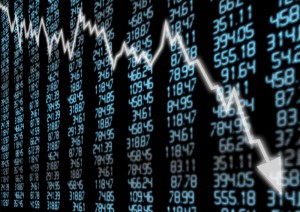 In a memo available online, Dawson James Securities, Inc. (Dawson James) stated that it acted as the sole underwriter for a February 25, 2015 offering for Great Basin Scientific, Inc. (Great Basin) (stock symbol: GBSN). Great Basin is a molecular diagnostics company that commercializes technologies that improve ease-of-use and delivers sample-to-result molecular diagnostic testing. According to Dawson James, at the time of the offering, Great Basin traded at $2.55 and had a market cap of approximately $15 million. Despite having only a market capitalization of only $15 million Dawson James rose $24 million of up to 2,724,000 units at $8.80 per unit price of Series E preferred stock and eight Series C warrants. Each share of Series E preferred stock was to be convertible into four common stock shares.
In a memo available online, Dawson James Securities, Inc. (Dawson James) stated that it acted as the sole underwriter for a February 25, 2015 offering for Great Basin Scientific, Inc. (Great Basin) (stock symbol: GBSN). Great Basin is a molecular diagnostics company that commercializes technologies that improve ease-of-use and delivers sample-to-result molecular diagnostic testing. According to Dawson James, at the time of the offering, Great Basin traded at $2.55 and had a market cap of approximately $15 million. Despite having only a market capitalization of only $15 million Dawson James rose $24 million of up to 2,724,000 units at $8.80 per unit price of Series E preferred stock and eight Series C warrants. Each share of Series E preferred stock was to be convertible into four common stock shares.
The Dawson James offering has many signs of a classic pump and dump penny stock scheme. After the offering the stock price for the company reach a high of almost $5 in April 2015. However, since that time the price of Great Basin has collapsed to about only $.06 per share wiping out shareholders. Back in April 2015, Dawson James claimed that Great Basin had announced a strong quarter and updated investors on their progress and receiving of a significant patent award.
In a Seeking Alpha article, a writer stated that the Dawson James offering gave cause for concern due to Dawson James’ past regulatory infractions and its association with one of its previous brokers who was arrested in connection with a nationwide Ponzi Scheme. In addition, the Seeking Alpha article cited other instances where Dawson James has had other investment banking relationships with other stocks that considered to be pump and dumps as well as with a Chinese company accused of fraud whose registration was revoked by the SEC. Importantly, prior to the Dawson James offering Great Basin had only 5 million outstanding shares and that the February 2015 secondary offering created convertible preferred stock and warrants that will allow an additional 35 million Great Basin shares that would undoubtedly flood the market and collapse the company’s stock.
 Securities Lawyers Blog
Securities Lawyers Blog

